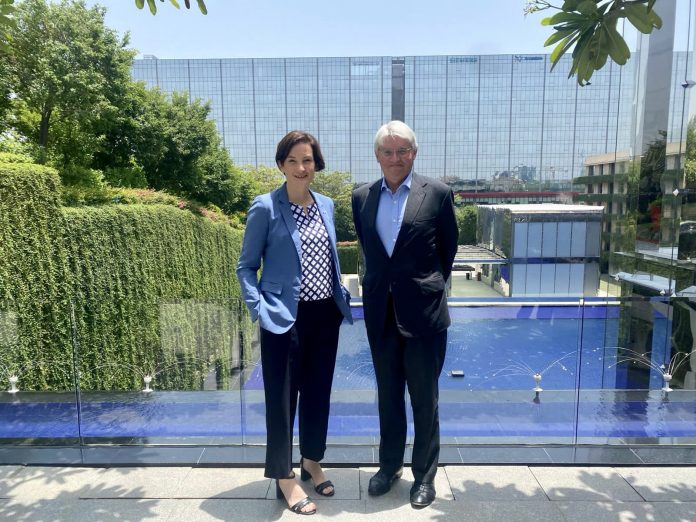UK International Development Minister Andrew Mitchell is in India for the G20 starting today (Monday) – and to boost UK-India cooperation on development including through climate and tech partnerships.
He will reinforce at the gathering in Varanasi how the UK’s partnerships and investments are having a multiplier effect in tackling the biggest shared challenges of today – including climate change, poverty and food insecurity.
The G20 Development Ministerial meeting in Varanasi is laying the groundwork to accelerate progress towards the Sustainable Development Goals ahead of the G20 Leader’s Summit in New Delhi this September.
At the G20, the UK emphasised the need to redouble global efforts to tackle the climate crisis and shocks facing the most vulnerable countries demonstrating UK’s position as a development leader set out earlier this year.
“We commend India for putting development and the needs of the poorest and most vulnerable at the heart of its G20 Presidency. The UK is committed to working with G20 partners to tackle the climate crisis and reduce poverty,” said Minister Mitchell.
New UK programmes announced in India include an investment of £10 million in Avaana Fund, a women-led climate-tech fund which supports innovative businesses to develop solutions to climate change and create jobs for women in sectors such as clean energy, energy storage and agriculture.
An investment of £12 million from the UK government-supported Neev II fund will go to Nutrifresh, an Agri-Tech start-up enterprise focused on making agriculture more sustainable by growing vegetables in an environmentally friendly way.
On Sunday, Minister Mitchell visited the Chakr Innovation research lab in Delhi, which is developing cutting-edge tech to tackle climate challenges.
The UK-supported lab is now developing innovative batteries for e-vehicles which do not need charging infrastructure and are fully recyclable, providing a cleaner and safer alternative to older lithium tech. The lab has previously developed devices that capture pollution-causing emissions and convert it to pigment for black inks and paints.
Targeted investments like these play a central role in tackling climate change and supporting sustainable development. They improve access to clean energy, create jobs and boost economic growth, all of which are vital to ending poverty.
“The investments highlight the UK’s commitment to delivering the 2030 Roadmap – a partnership that delivers for both our countries,” said Christina Scott, Acting British High Commissioner to India. “As set out in the UK’s International Development Strategy, we are focused on delivering clean and green infrastructure and creating opportunities for women and girls,” she added.

